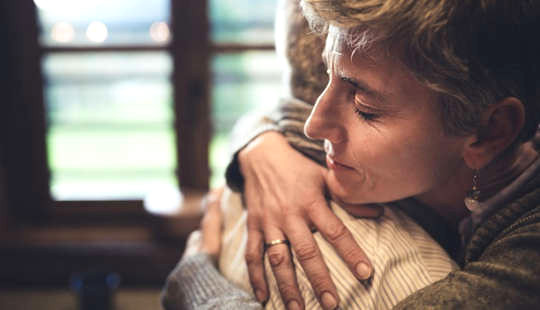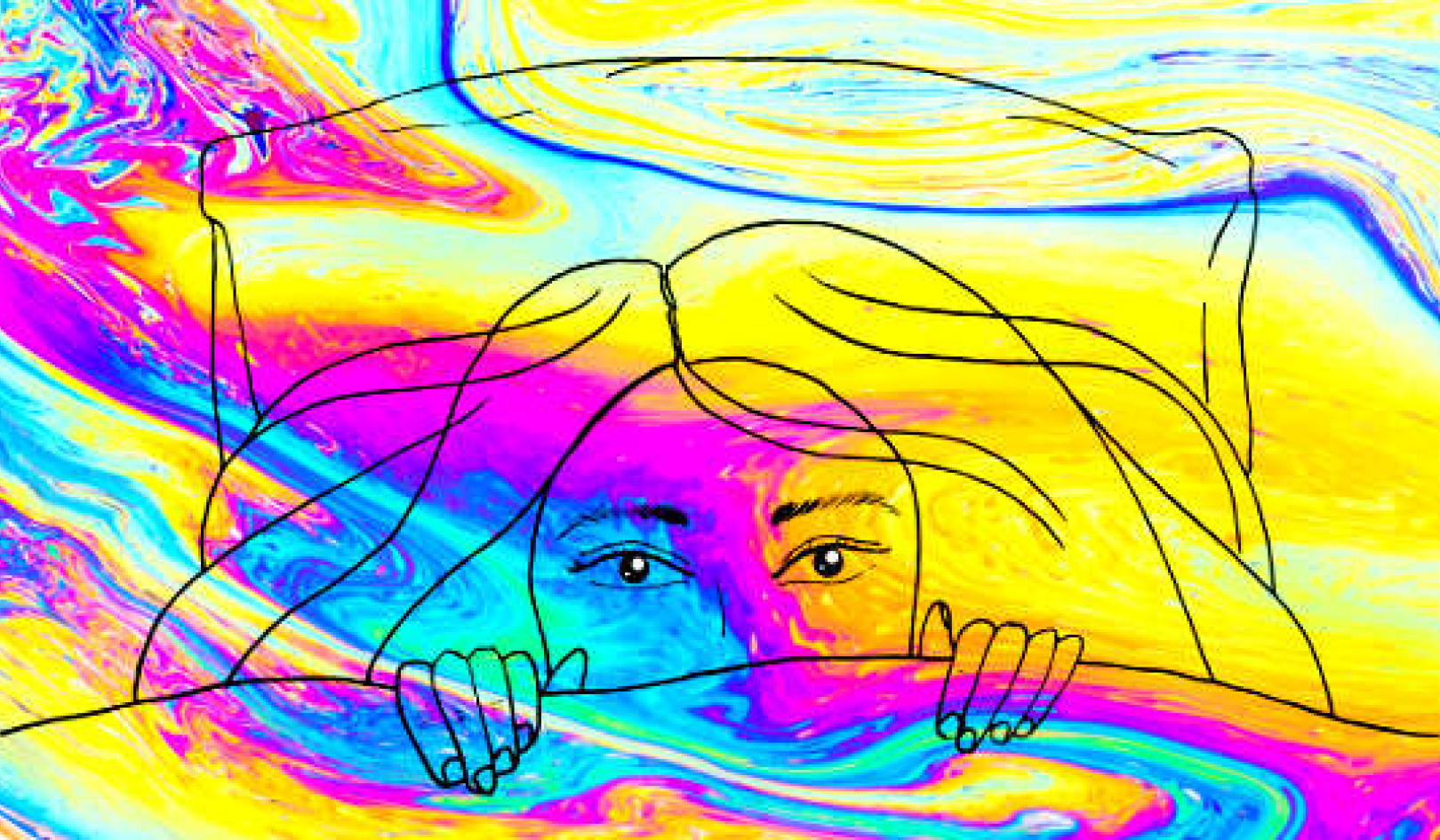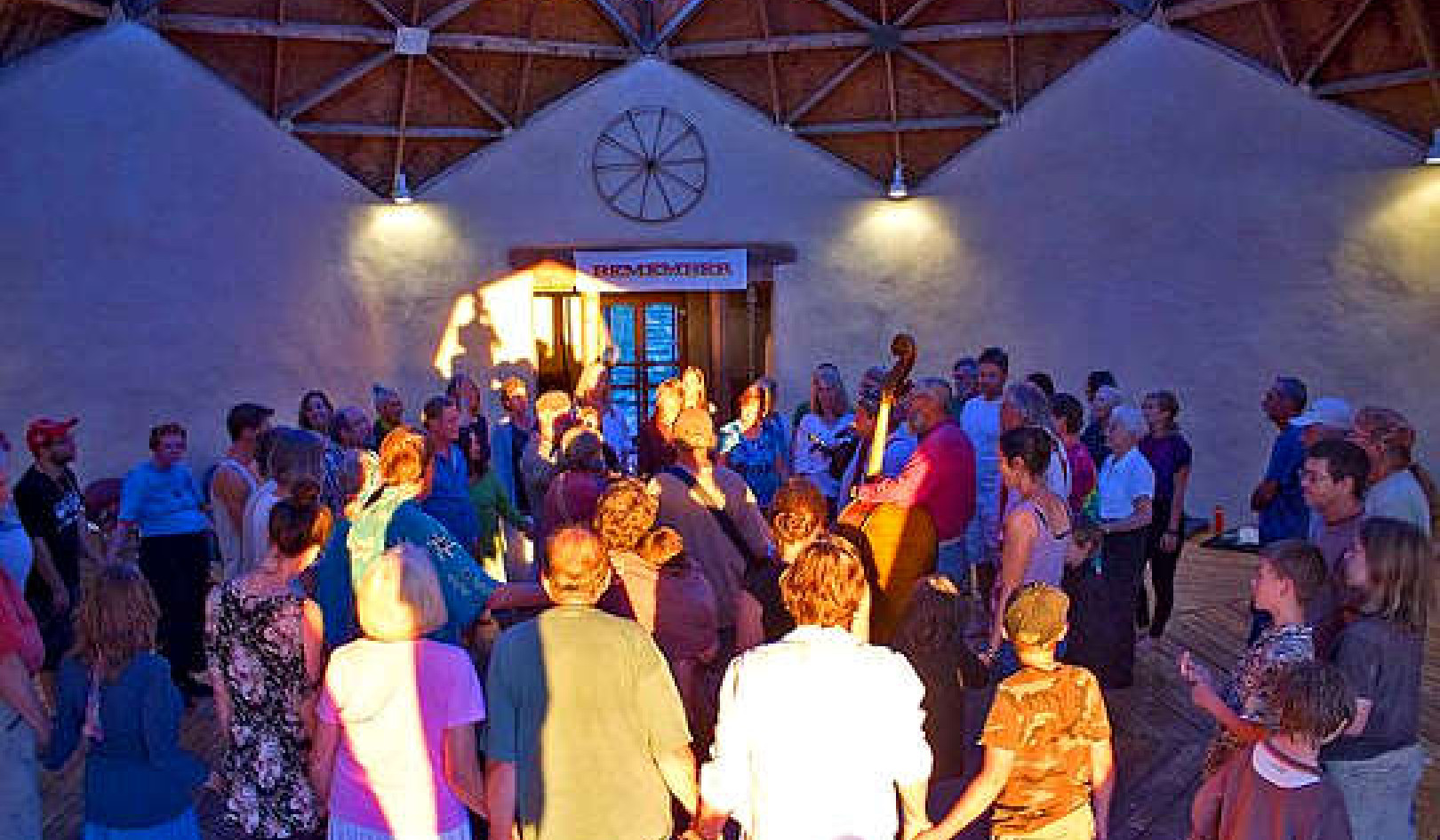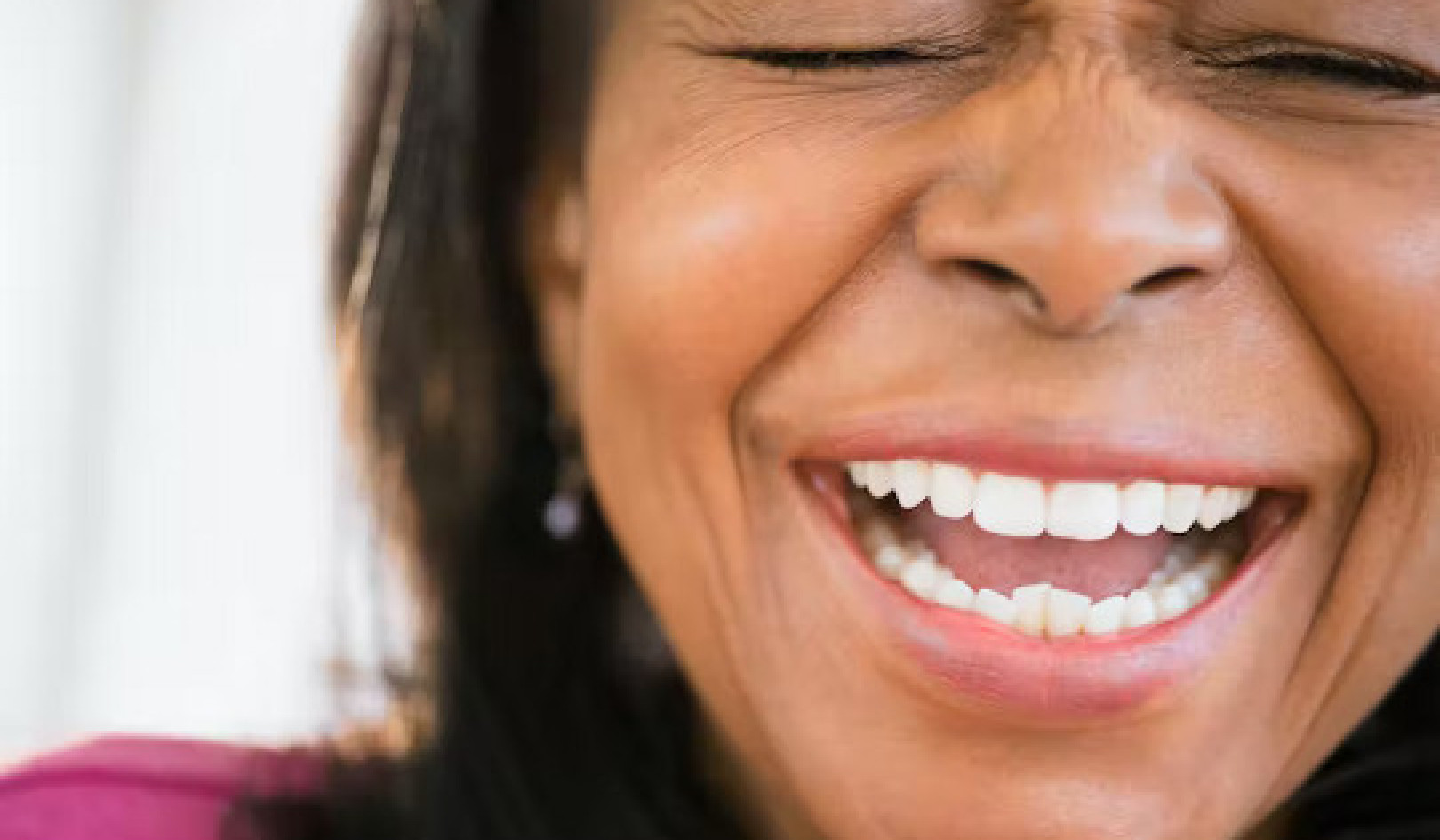
Our world is moving faster than ever before, constantly bombarding us with distractions. How can we remain stress-free in the face of cultural pressures to react instantly to communications and demands? We cannot simply turn our backs on the world: being isolated and self-absorbed increases stress. Isolation is a predictor of early-onset illness.
By contrast, we know that people who give are healthier and happier and live longer. Giving of ourselves is a stress reliever that yields immediate emotional benefits, bringing meaning to our lives.
We display goodness when we are more concerned with the welfare of others (selflessness) than when we are self-absorbed with our own preoccupations. Studies from the Institute of Gerontology at the University of Michigan have confirmed that giving is more powerful than receiving in terms of reducing mortality.
A fascinating study by the psychologist Paul Wink of Wellesley College followed high school students for over fifty years. He concluded that goodness expressed through giving in the teen years predicted good physical and mental health all the way into adulthood.
It’s In Our Genes
We are genetically programmed to thrive by being empathic and altruistic. The human species has survived thanks to its natural inclination to connect, collaborate, and relate. In the last few years, neuroscientists and social psychologists have provided ample empirical evidence for Darwin’s assertion that sympathy is our strongest instinct. [Charles Darwin, The Descent of Man and Selection in Relation to Sex, chapter 4.]
By doing good, we not only help others, we help ourselves as well. People who volunteer their time and energy to help others in need are known to experience the pleasurable feeling known as “helper’s high.” It leads to a release of endorphins that is beneficial to the helper’s health.
In his classic study of this phenomenon, Allan Luks, director of Big Brothers and Big Sisters of New York City, found that people who help others on a regular basis are ten times more likely to be healthy than people who do not. By adding meaning and purpose to our lives, helping others improves our sense of self-worth and reduces tension. [Alan Luks and Peggy Payne, The Healing Power of Doing Good]
Researchers at the University of Buffalo studied one thousand people who had experienced highly stressful situations, such as divorce, job loss, or the death of a loved one. These factors correlated significantly with the development of a host of medical problems including cancer, diabetes, back pain, and heart disease. However, among those who spent significant time giving to others, there was no correlation between stressful events and health issues.
Doing good does us good in the following ways:
- It helps us remain members in good standing of our circles of connection and care (including our families, groups of friends, and religious congregations). A connected life is a good and healthy life.
- It allows us to reap the psycho-physiological rewards of intimacy. The stress hormone cortisol rises sixfold in mammals after thirty minutes of isolation: one study showed that helping others predicted reduced mortality due to the association between stress and mortality.
- It increases our connections to others. Generous people are likely to receive more respect from their peers; selfish people elicit lack of regard and are often avoided.
- It induces others to reciprocate. Transcending our own needs and desires in order to tend to the needs and desires of others turns out to be a very effective way of addressing our own needs and desires. The instinctive inclination to match kindness with kindness can pave the way to lasting relationships.
We all benefit from rediscovering goodness and putting it back at the center of our lives. When we are doing good, our lives are good. When our lives are good, we are happy and free of stress. Yet many of us have unwittingly suppressed our goodness as a result of stress.
Understanding how we have lost our way and regaining our natural balance through doing and feeling good, by constructively resolving past hurts, is a journey well worth taking.
When we engage others in an attitude of goodness, we do what we are biologically programmed to do. When we bond through the relational qualities that goodness embodies, we experience a release of oxytocin, the near-magical neurotransmitter with the following properties:
- reduces anxiety and cortisol levels
- helps you live longer
- aids in recovery from illness and injury
- promotes a sense of calm and well-being
- increases generosity and empathy
- protects against heart disease
- modulates inflammation
- reduces cravings for addictive substances
- creates bonding and an increase in trust of others
- decreases fear and creates a feeling of security6
In addition to conferring these benefits, knowing how to express goodness makes us more energetic and more resilient. It gives us more skills with which to manage daily living. We are not limited in our pursuits of knowledge, and we are not limited in the array of people we can befriend. Wisdom consists not in pursuing happiness directly, but rather in building a good life on a foundation of goodness. Happiness comes as a by-product of that process. If there is a shortcut to happiness, it is through goodness.
Impediments to Goodness
Although we are all born with the ability to care for others, many of us have suppressed our innate goodness because of personal setbacks. When our hearts are broken, when the stressors of life are overwhelming, we are reluctant to open up to others for fear of being hurt again. Our traumas become permanent negative inclinations that define our character and, with it, our destiny. The good news is that we can work on our past hurts and recover what we thought we had lost forever.
A goodness breakthrough happens when we realize that goodness, empathy, and compassion are the most important things in life, and we change our lives accordingly. Goodness breakthroughs remove the obstacles to the proper functioning of our innate positive inclinations.
Goodness breakthroughs take place when we:
- acknowledge our emotions, especially fear, anger, and grief
- have the courage to be vulnerable
- express ourselves to those who possess goodness
- absorb feedback without being defensive
- use empathy to understand those who hurt us
- move away from self-absorption and negativity
- forgive ourselves
When we follow these steps (and we may have to repeat them frequently, depending on the depth of the emotional hurts we experienced), we are very likely to return to a basic feeling of goodness. I have worked with many people who have changed the way they talk to themselves. I have seen that changing self-talk results in better self-care, less stress, a better disposition, and ultimately being better to others.
Fear, Prejudice, and Goodness
If we have a solid sense of self, we are far more likely to be gracious to groups other than our own. We develop greater openness toward difference when we have been loved, respected, and understood in the early parts of our lives. If we received the empathic resonance that all young people crave, we grow with optimism and excitement about learning new ideas from other people.
This process begins in our families. If our parents had a diverse group of friends, if they were open to learning new ideas to replace less functional ones, then we are likely to value and feel happy when learning. By contrast, children who grow up in insecure households learn that the enemy is outside, and that only the people inside are good. Goodness then takes on a distorted meaning, promoting the idea that we should be and do good only to our own, not to those unlike us. This is a formula for living with chronic stress.
The results of the World Values Survey show that when we feel secure, bias and prejudice are markedly reduced and happiness is increased. [His Holiness the Dalai Lama and Howard C. Cutler, chapter 12 in The Art of Happiness in a Troubled World.] Perception and mood are closely related. When we feel understood and secure, we are more likely to perceive accurately and more likely to do good rather than harm.
Social psychologists have long established that avoidant or anxious individuals bolster their own self-worth by assuming that their group, whether ethnic, religious or otherwise, is superior. This defensive posture creates rigid thinking, the black-and-white perceptions that promote oversimplified theories about human beings and their affiliations.
Rigidity protects a fragile sense of self; it creates an artificial road map that gives an insecure person unreliable answers to life’s complexities. Establishing a worldview based on anything but the truth will ultimately create more and more fear and stress. Anxious people tend to avoid new ideas and new ways of thinking. Avoidant people often run from new challenges. Both of these types fear loss of self-esteem if they give up their entrenched beliefs.
Uncovering Our Basic Goodness
To uncover our basic goodness, we must make a disciplined effort. We must recognize that goodness is part of our being: it is at the heart of our humanness. We must move away from excluding anyone from our lives on the basis of bias or prejudice. Goodness is not just for those who adhere to the Judeo-Christian ethic, or the Buddhist or Muslim ethic, or the secular humanist ethic: it is innate to all of us.
We practice goodness by the way we live, not by holding on to fixed ideas that shore up our fragile sense of self. In many instances, we need to unlearn mistaken positions that we have held on to defensively.
We are programmed to remember what caused us fear and pain. Fear creates rigid thinking, which leads to false theories, inaccurate judgments, and inordinate amounts of stress. Reevaluate your past with today’s wisdom, and in the process you will release your dormant innate goodness.
Thomas Paine, one of our Founding Fathers, once said, “My country is the world, my religion is to do good.” Our world would surely be a better place if we could all live by his words.
Anger and Goodness
Anger is a powerful impediment to the flow of goodness. Extensive research has revealed that when people are angry, their attempts to resolve conflict are accompanied by the cognitive distortions of quick judgments and oversimplifications. The stress hormone adrenaline, which is released when we are angry, causes stored memories to become more vivid and harder to erase than less emotional memories.
By letting go of the misguided beliefs that have supported our distorted view of the world, we light the spirit of basic goodness so that love and compassion can break through. This kind of breakthrough removes the obstacles to seeing our world and ourselves clearly.
There is no doubt that goodness is good for us, and if the hurts of our past have made us lose sight of our internal goodness, we can take steps to regain and refocus on this amazing ability. Goodness retrieved gives us the opportunity to improve and extend our lives while also enabling us to contribute to a better society and world.
Reprinted with permission of the publisher,
New World Library. ©2016.
www.newworldlibrary.com
Article Source:
 The Stress Solution: Using Empathy and Cognitive Behavioral Therapy to Reduce Anxiety and Develop Resilience
The Stress Solution: Using Empathy and Cognitive Behavioral Therapy to Reduce Anxiety and Develop Resilience
by Arthur P. Ciaramicoli Ph.D.
Click here for more info and/or to order this book.
About the Author
 Arthur P. Ciaramicoli, EdD, PhD, is a licensed clinical psychologist and the chief medical officer of soundmindz.org, a popular mental health platform. He has been on the faculty of Harvard Medical School and chief psychologist of Metrowest Medical Center. The author of several books, including The Power of Empathy and Performance Addiction, he lives with his family in Massachusetts. Find out more at www.balanceyoursuccess.com
Arthur P. Ciaramicoli, EdD, PhD, is a licensed clinical psychologist and the chief medical officer of soundmindz.org, a popular mental health platform. He has been on the faculty of Harvard Medical School and chief psychologist of Metrowest Medical Center. The author of several books, including The Power of Empathy and Performance Addiction, he lives with his family in Massachusetts. Find out more at www.balanceyoursuccess.com
























